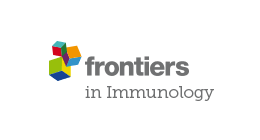Research Topic: Frontiers in Immunology
Urinary tract infections (UTIs) are among the most common bacterial infections in humans worldwide. From 1990 to 2017 incident and death rates were observed to have increased by 52 % and 149 %, respectively. UTIs may lead to pyelonephritis and sepsis, which can result in fatal outcomes. One of the unresolved problems with UTIs are recurrent infections and pathogen multidrug resistance.
Gram-negative bacteria such as E. coli and P. mirabilis are the dominant cultivable pathogenic bacteria of UTIs. Multiple bacterial virulence factors – such as adhesins, exo-enzymes, biofilm formation, and pro-inflammatory activities (endotoxins) – are involved in catheter colonization, ascending infection, inflammation, and renal stone formation often associated with UTIs.
Recent advances in whole genomes sequencing (WGS), transcriptomes, and metabolomics are paving the way to more complete pictures of the human urinary tract microbiome and its role in UTIs. However, UTIs still remain complex biological phenomena that involve an interplay between hosts, pathogens, and environmental factors. As a result, multidisciplinary approaches are needed to advance our knowledge in the field of UTIs and to develop impactful novel treatment options.
In this Research Topic we aim to capture the latest developments in the pathogenesis of UTIs, as well as the molecular basis for adhesion and biofilm formation in UTIs. We welcome submissions on, but not limited to, the following sub themes:
• Urinary tract and gut microbiome analysis and its role in UTI pathogenesis.
• Elucidation of clonal P. mirabilis and E. coli differentiation during the course of UTIs, a phenomenon correlated with multidrug resistance in UTIs.
• Studies on the transition of planktonic bacterial to sessile cells and mono- and poly-species bacterial biofilms formation in UTIs.
• The molecular basis for adhesion and biofilm formation in UTIs.
• Novel nano- and biomaterials for catheter assembly with anti-bacterial features, for UTI prevention.
Keywords: Urinary Tract Infection, UTIs, Catheters, Biofilms, Bacterial Pathogenesis
Important Note: All contributions to this Research Topic must be within the scope of the section and journal to which they are submitted, as defined in their mission statements. Frontiers reserves the right to guide an out-of-scope manuscript to a more suitable section or journal at any stage of peer review.


